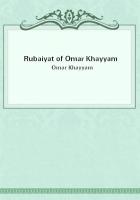Apparently, even here, the immigrant must pay the old cost, and he seems to represent the group and type which is ****** the most genuine contribution to the present growth in governmental functions, with its constant demand for increasing adaptations.
In the induction of the ***** immigrant into practical citizenship, we constantly ignore his daily experience. We also assume in our formal attempts to teach patriotism to him and to his children, that experience and traditions have no value, and that a new sentiment must be put into aliens by some external process. Some years ago, a public-spirited organization engaged a number of speakers to go to the various city schools in order to instruct the children in the significance of Decoration Day and to foster patriotism among the foreign born, by descriptions of the Civil War. In one of the schools, filled with Italian children, an old soldier, a veteran in years and experience, gave a description of a battle in Tennessee, and of his personal adventures in using a pile of brush as an ambuscade and a fortification. Coming from the ( 76) schoolhouse, an eager young Italian broke out, with characteristic vividness, into a description of his father's campaigning under the leadership of Garibaldi, possibly from some obscure notion that that, too, was a civil war fought from principle, but more likely because the description of one battle had roused in his mind the memory of another such description. The lecturer, whose sympathies happened to be on the other side of the Garibaldian conflict, somewhat sharply told him that he must forget all that; that he was no longer an Italian, but an American.
The natural growth of patriotism based upon respect for the achievements of one's fathers, the bringing together of the past with the present, the significance of the almost world-wide effort at a higher standard of political ******* which swept over all Europe and America between 1848 and 1872 could, of course, have no place in the boy's mind because it had none in the mind of the instructor whose patriotism apparently tried to purify itself by the American process of elimination.
How far a certain cosmopolitan humanitarianism ignoring national differences, is either possible or desirable, it is difficult to state; but certain it is that the old type of patriotism, founded upon a common national history and land occupation, becomes to many of the immigrants who ( 77) bring it with them a veritable stumbling-block and impediment. Many Greeks whom I know are fairly besotted with a consciousness of their national importance, and the achievements of their glorious past.
Among them the usual effort to found a new patriotism upon American history is often an absurd undertaking; for instance, on the night of one Thanksgiving Day, I spent some time and zeal in a description of the Pilgrim Fathers, and the motives which had driven them across the sea, while the experiences of the Plymouth colony were illustrated by stereopticon slides and little dramatic scenes. The audience of Greeks listened respectfully, although I was uneasily conscious of the somewhat feeble at tempt to boast of Anglo-Saxon achievement in hardihood and privation, to men whose powers of admiration were absorbed in their Greek background of philosophy and beauty. At any rate, after the lecture was over, one of the Greeks said to me, quite simply, "I wish I could describe my ancestors to you; they were very different from yours." His further remarks were translated by a little Irish boy of eleven, who speaks modern Greek with facility and turns many an honest penny by translating, into the somewhat pert statement: "He says if that is what your ancestors are like, that his could beat them out."( 78) It is a good illustration of our faculty for ignoring the past, and of our failure to understand the immigrant's estimation of ourselves. This lack of a more cosmopolitan standard, of a consciousness of kind founded upon creative imagination and historic knowledge is apparent in many directions, and cruelly widens the gulf between immigrant fathers and their children who are "Americans in process."A hideous story comes from New York of a young Russian Jewess who was employed as a stenographer in a down-town office, where she became engaged to be married to a young man of Jewish-American parentage. She felt keenly the difference between him and her newly immigrated parents, and on the night when he was to be presented to them she went home early to make every possible preparation for his coming. Her efforts to make the menage presentable were so discouraging, the whole situation filled her with such chagrin, that an hour before his expected arrival, she ended her life.
Although the father was a Talmud scholar of standing in his native Russian town, and the lover was a clerk of very superficial attainments, she possessed no standard by which to judge the two men. This lack of standard must be charged to the entire community; for why should we expect an ( 79) untrained girl to be able to do for herself what the community so pitifully fails to accomplish?
All the members of the community are equally stupid in throwing away the immigrant revelation of social customs and inherited energy. We continually allow this valuable human experience to go to waste although we have reached the stage of humanitarianism when no infant may be wantonly allowed to die, no man be permitted to freeze or starve, if the State can prevent it. We may truthfully boast that the primitive, wasteful struggle of physical existence is practically over, but no such statement can be made in regard to spiritual life. Students of social conditions recognize the fact that modern charity constantly grows more democratic and constructive, and daily more concerned for preventive measures, but to admit frankly similar aims as matters for municipal government as yet seems impossible.













